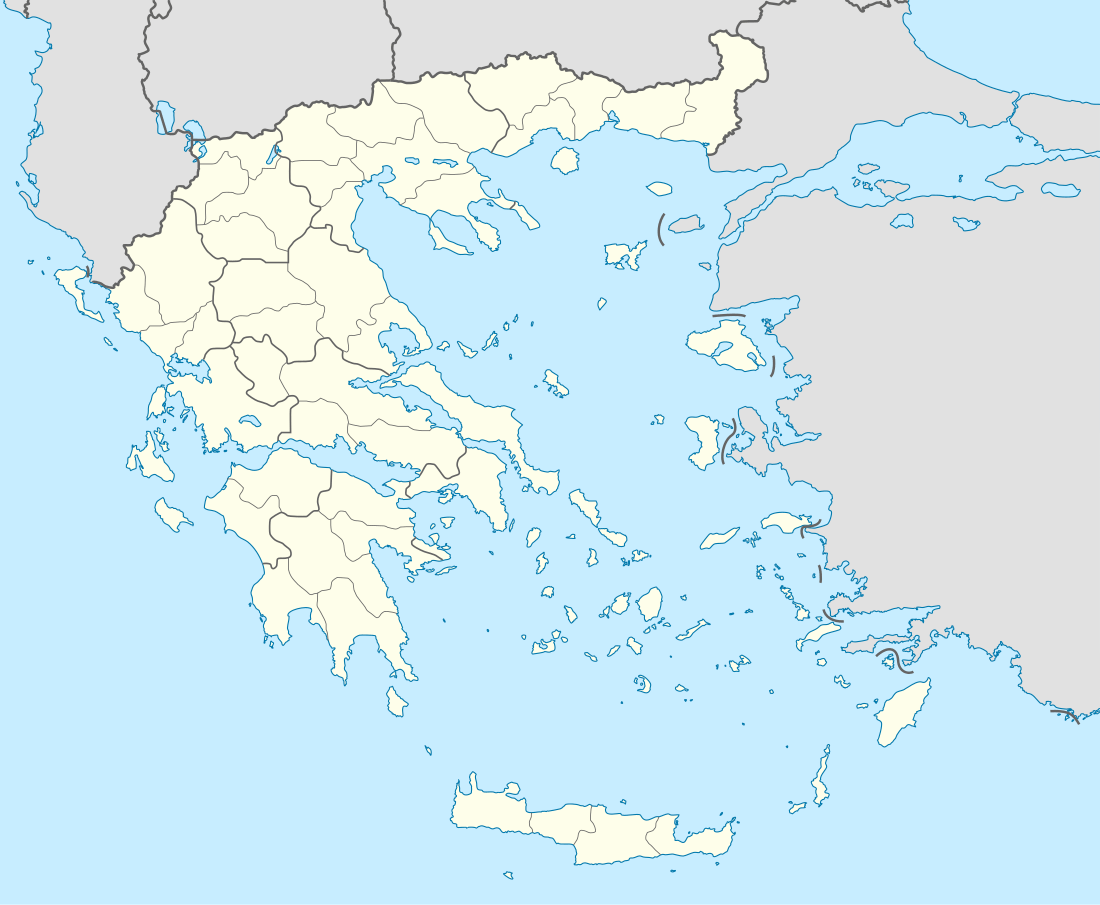Kefalovryso, Ioannina
| Kefalovryso Κεφαλόβρυσο | |
|---|---|
 Kefalovryso | |
| Coordinates: 40°0.9′N 20°33.6′E / 40.0150°N 20.5600°ECoordinates: 40°0.9′N 20°33.6′E / 40.0150°N 20.5600°E | |
| Country | Greece |
| Administrative region | Epirus |
| Regional unit | Ioannina |
| Municipality | Pogoni |
| Municipal unit | Ano Pogoni |
| Elevation | 650 m (2,130 ft) |
| Community[1] | |
| • Population | 838 (2011) |
| • Area (km2) | 15.831 |
| Time zone | UTC+2 (EET) |
| • Summer (DST) | UTC+3 (EEST) |
| Postal code | 440 06 |
| Area code(s) | +30-2657-xxx-xxx |
| Vehicle registration | INx-xxxx |
Kefalovryso (Greek: Κεφαλόβρυσο, Aromanian: Migidei, Migideia) is a village and a community of the Pogoni municipality.[1] Before the 2011 local government reform it was a part of the municipality of Ano Pogoni, of which it was a municipal district and the seat.[2] The 2011 census recorded 838 residents in the village.[1] The community of Kefalovryso covers an area of 15.831 km2.[3]
History
The Greek newspaper Pigi Kefalovrysou mentioned in an article that in 1840 this village was founded by a lone tselingas (Greek for goatherd) named Nastas (Greek: ο τσέλιγκας Νάστας). Kefalovryso passed from the Ottoman Empire to Greece in 1913, during the Balkan Wars.
In the 10th of July a massacre happened in the village. 22 men were put in two houses, with most of them being soldiers from the Greco-Italian war. Only one of them survived and the rest were burnt alive.
Geography
It is situated at the foot of mount Nemertsika, near the Albanian border. The local population for many years suffered from Albanian Muslim raiders. It is 3 km west of Vasiliko, 12 km northeast of Delvinaki, 16 km west of Konitsa, 36 km east of Gjirokastër (Albania) and 46 km northwest of Ioannina.
Facilities
In Kefalovryso, there is a primary school, a lyceum, a minor soccer team, a gymnasium, a church, a small post-office and a square in the centre with the town hall of Ano Pogoni. The factory that produces most of the Greek euro coins is located in Kefalovryso.[4][5]
Historical population
| Part of a series on |
| Aromanians |
|---|
| By region or country |
| Major settlements |
| Language |
| Religion |
| History |
| Related groups |
Most of the inhabitants are Aromanians (Vlachs), speaking the Aromanian language along with Greek.
| Year | Population |
|---|---|
| 1981 | 1,062 |
| 1991 | 1,122 |
| 2001 | 1,040 |
| 2011[1] | 838 |
See also
External links
References
- 1 2 3 4 "Απογραφή Πληθυσμού - Κατοικιών 2011. ΜΟΝΙΜΟΣ Πληθυσμός" (in Greek). Hellenic Statistical Authority.
- ↑ Kallikratis law Greece Ministry of Interior (in Greek)
- ↑ "Population & housing census 2001 (incl. area and average elevation)" (PDF) (in Greek). National Statistical Service of Greece. Archived from the original (PDF) on 2015-09-21.
- ↑ "Μεταλλουργική Βιομηχανία Ηπείρου home" (in Greek). Μεταλλουργική Βιομηχανία Ηπείρου Α.Ε. Retrieved 4 May 2014.
- ↑ Κεφαλόβρυσο (in Greek). diakopes.gr. Retrieved 4 May 2014.